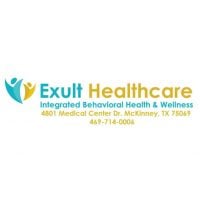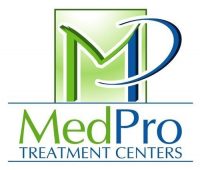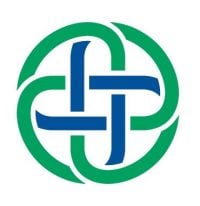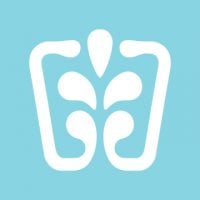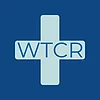About This Princeton, TX Facility
The Meadows Texas, located in Princeton, TX, is a proud member of the Meadows Behavioral Healthcare family, providing evidence-based treatment for substance use disorders, mental health conditions, and emotional trauma in a serene setting.
The facility focuses on treating alcohol and substance abuse, dual diagnosis, mental health issues, opioid addiction, and eating disorders.
Treatment at The Meadows Texas includes detox, residential care, dual-diagnosis support, and aftercare. They utilize cognitive-behavioral therapy, 12-step meetings, and family therapy to help patients develop healthy lifestyles. The facility is accredited by JCAHO, LegitScript, SAMHSA, and holds a State License.
- Individualized treatment plans tailored to each patient's unique needs and goals
- Continuing care services, including outpatient counseling and peer support, to maintain sobriety
- Trauma-informed care provided by clinical staff trained in the Meadows Model
- Serene 43-acre setting offering peace and tranquility to support recovery
With the opioid epidemic ravaging Texas communities, The Meadows Texas provides comprehensive, evidence-based treatment to help individuals overcome addiction and rebuild their lives.
The ideal candidate for treatment at The Meadows Texas is an adult struggling with substance abuse, mental health issues, or co-occurring disorders, seeking a supportive, serene environment for recovery.
Genders
Ages
Modality
Additional
Religion / Spirituality
Christian
Accreditations
State License
SAMHSA

LegitScript

JCAHO
Conditions and Issues Treated
Using both legal medications and illegal substances in order to maintain an addiction is substance abuse. Illegal substances can become addictive after a single use. If you are obtaining legal medications illegally, you may be suffering from substance abuse.
Fortunately facilities like The Meadows Texas in Princeton, TX are here to help.
Opioid addiction treatment facilities in Texas, like The Meadows Texas cover both illegal and prescription opioids abuse. Most plans include detoxification and subsequent medications to ease the process. Behavioral therapies and counseling are also necessary to resolve the root cause of addiction.
When someone in Texas struggles with both addiction and mental or emotional illness, this is considered a dual diagnosis. Dual diagnosis treatment can include emotional trauma, bipolar disorder, schizophrenia, depression. Getting treatment for these issues must occur at the same time to treat either of them effectively.
Levels of Care Offered
This center offers a variety of custom treatment tailored to individual recovery. Currently available are Aftercare Support, Detox, Drug Rehab, Dual-Diagnosis, Inpatient, Intensive Outpatient, Intervention, Outpatient, Partial-Hospitalization, Residential, Sober-Living / Half-Way, with additional therapies available as listed below.
A detox program helps the person physically withdraw from drugs and helps them track their progress. So, suppose the person isn’t ready for sobriety (or relapses). In that case, the treatment professionals can catch it early and help re-orient them towards recovery.
In order to focus on the psychological aspects of addiction, one must first address the physical symptoms of withdrawal.
Withdrawal symptoms can be painful, even fatal, so managing the detox process carefully is critical. Severe withdrawal symptoms are often treated with more advanced pharmaceutical interventions. Nausea and headaches are common side effects of detoxification.
Inpatient rehabilitation aims to treat severe addictions and co-occurring disorders. Depending on individual requirements, the duration of the stay at The Meadows Texas ranges from four weeks to six months. Texas inpatient recovery guarantees that the patient resides in an environment free of drugs.
An intensive outpatient treatment program is set up for those struggling with an addiction to begin the recovery process. Patients come to Princeton, TX to The Meadows Texas for therapy, support, programs, and medical supervision. Intensive outpatient treatment is often very tightly scheduled and heavily structured.
Partial Hospitalization Programs (PHP) are meant for individuals experiencing trouble functioning at school or with work and other occupations, medical instability, inadequate support at home, simultaneous mental health issues, and substance use disorders in Texas. They are also meant for those experiencing the risk of self-harm or the urge to harm others. It is a short-term treatment program offered at The Meadows Texas, aiming to improve individuals enough to be reassigned to a lower level of care. The program operates within a psychiatric hospital for several hours daily, usually three to five days per week.
A sober living home in Princeton, TX, also known as an SLH, is much like a halfway house. It is halfway between a drug or alcohol treatment facility and living at home. There are some specific rules and regulations residents must follow, like attending mandatory meetings, and household chore-type activities.
Residential treatment programs are those that offer housing and meals in addition to substance abuse treatment. Rehab facilities that offer residential treatment allow patients to focus solely on recovery, in an environment totally separate from their lives. Some rehab centers specialize in short-term residential treatment (a few days to a week or two), while others solely provide treatment on a long-term basis (several weeks to months). Some offer both, and tailor treatment to the patient’s individual requirements.
Intervention services are designed to help loved ones of an individual suffering from alcohol or drug addiction. They aim to help the individual realize that their behavior is causing damage, and external help is crucial to handle their problem efficiently.
Treatment for substance abuse does not cease after an individual successfully completes a detox or rehabilitation program. A vital follow-up treatment service is aftercare support provided to individuals at The Meadows Texas in Texas after they attain initial sobriety.
Aftercare support often takes the following forms: 12-Step Programs, Outpatient Treatment Programs, and Support Groups. The most effective aftercare programs are tailored to meet an individual’s specific needs and circumstances.
The Meadows Texas‘s Therapies & Programs
Treatment programs include individual therapy for the greatest chances of success. Customized individual therapy is counseling involving you and your The Meadows Texas counselor. Individual therapy leads to greater peace and understanding about your triggers for addiction.
When family members are more proactive and involved in the treatment procedure, it encourages the patient to advance his or her progress. Moreover, it shouldn’t be ignored that genetics play a role when it comes to addiction, so it’s better to approach the problem as a unit. Also, with proper education, family members can help an individual avoid addiction triggers and guide him or her in making lifestyle changes necessary for his or her sobriety.
It has been said that unhealed trauma is the root of most addictions. Trauma therapy is a way of addressing trauma while in a safe situation in order to heal. Healing past traumas and introducing coping strategies are strong foundations for sustained recovery from addiction. This may involve individual or group counseling or both, in a Princeton, TX facility. Other forms of therapy have been proven to assist in healing past traumas.
Dialectical Behavior Therapy (DBT) helps those who attend The Meadows Texas understand how their feelings, beliefs, and thoughts affect their behaviors. DBT is particularly useful for people with self-harming behaviors, as well as those with substance abuse disorders. DBT teaches people how to tolerate distress, regulate their emotions, and how to become mindful.
Cognitive Behavioral Therapy (CBT) is a type of psychotherapy that focuses on the underlying thoughts and behaviors that caused the problem of addiction in the first place and may cause a relapse. Negative feelings are common in substance abuse disorders, and if not recognized, they can cause co-occurring disorders.
CBT involves strategies that help to change the thinking and behavioral pattern by cognitive restructuring. In simple terms, it helps to remove negative thoughts and provides long-term benefits. Also, CBT promotes self-awareness, self-control, and healthy ways to respond to negative thoughts. It can be administered as a mono-therapy as well as a part of combination therapy.
Eye Movement Desensitization and Reprocessing (EMDR) is a therapeutic method used to treat emotional trauma. In an EMDR session, a The Meadows Texas therapist provides a stimulus for the client, such as hand-tapping or moving a visual stimulus that the client tracks while recounting a traumatizing event. EMDR is notably effective in treating PTSD.
In the midst of an addiction certain healthy habits and behaviors can be forgotten or discarded altogether. While in treatment you will learn life skills that will help you successfully maintain sobriety and rebuild your life in Princeton, TX. Some examples of this are time management, social skills, nutrition, hygiene, stress management and taking care of yourself.
The 12-step program is a part of substance abuse treatment. In this program, peers help each other to achieve the goal of abstinence. It was initially developed by the founders of Alcoholics Anonymous. Due to its huge success, the 12-step program is included as a part of other substance abuse treatments.
The 12 steps guide at an individual level. It begins with the individuals accepting that they are addicts, and they understand its consequences. It is followed by focusing on the recovery process and making amends for hurting others. The program provides the benefit of cognitive restructuring, which refers to the process of change in the negative thoughts that leads to long-term benefits.
Addiction commonly results in varying levels of malnutrition, vitamin and mineral deficiencies. This can be reflected in weight loss, hair loss or hair changes, skin irregularities and damage to multiple internal body functions. While in active addiction meals can be skipped or replaced by drugs or alcohol. Eating correctly to replace lost vitamins and minerals while balancing your diet can build confidence while restoring your health from the inside out.
Nicotine Replacement Therapy (NRT) helps smokers get nicotine into their system without resorting to smoking. It’s a way to help people quit smoking without going cold turkey and experience aggressive withdrawal symptoms. The products (in the form of gums, sprays, patches, inhales, or lozenges) used in NRT provide the body with nicotine, excluding the toxic substances found in tobacco.
NRT treatment at The Meadows Texas in Princeton, Texas lowers down nicotine cravings, so the patient does not go through physical weakness while dealing with the emotional and mental stress of quitting smoking. Coupling NRT with counseling and other means of support gives long-term smokers a better chance of removing their unhealthy habit.Patient Experience
Creative Arts
Many people opt for creative arts therapy at The Meadows Texas because allowing out the creative side helps them process many situations. Creative arts therapy can include singing, playing instruments, writing, sculpting, fashion, painting, improv, building, and more. The creation process helps people think through puzzles to achieve and end result, which can then be applied to the process from addiction through recovery.
Experiential Therapy at The Meadows Texas
Experential therapy is a unique type of therapy that deals with the subconscious mind. This treatment offered by The Meadows Texas in Princeton, TX encourages individuals to work out their issues with their inner self. Some of the most common examples of experiential therapy are equine therapy, music therapy, adventure therapy, and role playing.
Equine Therapy at The Meadows Texas
Equine therapy at The Meadows Texas matches someone in need of therapy with the responsibilities of building a relationship with and caring for horses. This unique partnership has been found to be tremendously healing during the process of recovery from addiction. Interactions in Princeton, TX with horses involves trust, consistency, accountability and boundaries. This may involve horseback riding or day to day caring for your horse. Equine therapy has proven effective in relearning how to build trusting relationships.
Fitness Therapy
Recovery from addiction involves recovering the body and mind. Learning how to take care of yourself includes physical fitness. Studies have shown that exercise increases abstinence rates and ease withdrawal symptoms.
Payment Options Accepted
For specific insurance or payment methods please contact us.
Is your insurance accepted?
Ask an expert, call (888) 674-0062
Additional Details
Specifics, location, and helpful extra information.
Princeton, Texas 75407 Phone Number(214) 495-1764 Meta DetailsUpdated April 15, 2024
Staff Verified
What else do people call The Meadows Texas?
People have occasionally also searched for “Serenity View Recovery Center in Texas”
Is The Meadows Texas a LegitScript Verified Treatment Facility?
According to our most recent records, we have found this center to be LegitScript verified.
Patient Reviews
There are no reviews yet. Be the first one to write one.
Princeton, Texas Addiction Information
Texas is one of the primary hubs for drug smuggling into the country. The border between Texas and Mexico is more than 1,000 miles long. More than 10 million residents use alcohol every year and more than 25% of those are minors. Alcohol and drug use has become so common in Texas that almost 15% of all deaths can be attributed to these substances.
Treatment in Nearby Cities
- Georgetown, TX (185.3 mi.)
- Bonham, TX (36.8 mi.)
- Frisco, TX (18.6 mi.)
- Beeville, TX (334.7 mi.)
- Minot, TX (1,074.5 mi.)
Centers near The Meadows Texas
The facility name, logo and brand are the property and registered trademarks of The Meadows Texas, and are being used for identification and informational purposes only. Use of these names, logos and brands shall not imply endorsement. RehabNow.org is not affiliated with or sponsored by The Meadows Texas.






